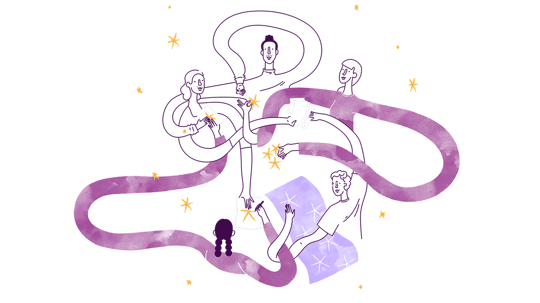Psychosocial Risk Management
Psychosocial Risk Management—like addressing workplace psychological risk factors such as conflict, overwhelming workloads, unclear roles, or poor organisational culture—helps businesses across Australia support psychological safety while meeting WHS obligations. These issues don’t just harm individuals; they disrupt operations, slash productivity, and increase turnover.
Our Psychosocial Risk Management services help Australian organisations and businesses identify, assess and reduce psychological risk factors in the workplace, using evidence-based tools and methods to gain deep workplace insights and craft tailored solutions. By addressing the root causes, we help you build a safer, healthier, and more productive work environment, reducing absenteeism, retaining talent, and ensuring compliance with Australian workplace safety laws.



Psychosocial Risk Assessment
Businesses have a primary duty to safeguard their employees against psychosocial risk factors in the workplace. Psychosocial hazards are aspects of work and situations that may cause a stress response, which in turn can lead to psychological or physical harm. They may include such factors as role overload, poor support from managers, remote or isolated work, exposure to traumatic events or workplace violence, bullying and harassment.
Altius will conduct an assessment that is focused on identifying and evaluating psychological hazards and risks within the workplace, and report on the findings or areas recommended for continual improvement. Our Psychosocial Risk Assessment services are delivered by experienced WHS consultants, organisational psychologists, and allied health professionals who provide an integrated approach to identifying psychosocial risk and providing tailored solutions to address the source of the risk.
When psychosocial risk factors in the workplace are proactively addressed:
- They can reap the benefits of employee engagement and morale, improved performance and productivity and a reduction in worker turnover.
- They’ll comply with WHS regulations and successfully navigate workplace inspections by WHS regulatory bodies (such as Safe Work Australia).
- It reassures employees that your organisation’s WHS policies and procedures have their best interests at heart.
- Claims associated with work-related mental health conditions will be reduced.

Work Design
Effective workplace Psychosocial Risk Management starts with thoughtful Work Design. Good Work Design (or Work Redesign) is the foundation of a thriving, high-performing workplace. It identifies the optimal physical, biomechanical, cognitive and psychosocial aspects of work and designs work in alignment with these, whilst considering individual differences.
Poorly designed work—characterised by excessive work demands, limited autonomy, low variety, role ambiguity and inadequate support—can negatively affect worker health, wellbeing and job satisfaction. These challenges not only impact individual health but can also hinder business success, leading to increased costs from injuries, absenteeism, turnover, and regulatory risks.
Ensuring good work design is more than just best practice—it’s a critical strategy for managing psychosocial risks at the core and meeting workplace health and safety obligations. The Work Design Service helps organisations assess and improve work design by addressing factors using the SMART work design framework.
Organisational Psychologists and Psychologists collaborate with leaders and employees to assess work design using validated psychometric assessments and implement tailored, practical solutions that cultivate a healthier, more engaged workforce.

WHS for Remote and Hybrid Workforces
Altius helps businesses manage psychosocial risks in remote and hybrid teams through:
- Psychosocial Risk Assessments for reviewing remote and hybrid work
- Home office ergonomic evaluations
- Coaching programs
- Guidance on reporting and monitoring remote WHS issues
- Mental health assessments and counselling provided by PeopleSense: Psychology & Wellbeing for remote or hybrid workers who may be experiencing difficulty
Frequently Asked Questions About Psychosocial Risk Management
Safe Work Australia has identified the psychological risk factors that organisations should prioritise to assess and manage:
- Role overload with high workloads or job demands
- Low workload or job demands
- Low job control
- Poor support from supervisors, managers or co-workers
- Conflict or poor workplace relationships between workers, supervisors, managers and co-workers
- Role conflict or lack of role clarity
- Poor organisational change consultation
- Inadequate reward and recognition
- Poor procedural justice
- Hazardous physical working environments
- Remote or isolated work
- Exposure to traumatic events
- Workplace violence and bullying
- Harassment including sexual harassment
A psychosocial risk is a workplace factor, like high job demands, low job control, poor support or bullying, that can cause stress, and in turn lead to mental or physical harm. These risks are now formally recognised under Australian WHS laws and must be assessed and managed.
Examples of psychosocial risks include workplace bullying, excessive workloads, lack of role clarity, and poor organisational change management. These risks can lead to stress, burnout, and decreased productivity. Altius Group provides evidence-based interventions to mitigate these risks.
Psychological safety describes a workplace where employees feel safe to speak up, ask questions, or raise concerns without fear of blame or backlash. While it’s not a psychosocial hazard in itself, low psychological safety can result from unaddressed psychosocial risks, such as poor leadership, conflict, or lack of support. Addressing these risks helps foster a safer and more open work culture.
Implementing psychosocial risk management in the workplace helps reduce stress-related hazards like high job demands, low support, or unclear roles. The benefits include:
- Improved mental health outcomes for employees
- Higher team engagement and job satisfaction
- Reduced absenteeism and staff turnover
- Increased productivity and workplace performance
- A safer, more compliant work environment in line with WHS laws
By managing psychosocial risks early, organisations support both their people and their bottom line.
Altius Group offers comprehensive services to help organisations manage psychosocial risks, including:
- Psychosocial Risk Assessments: Identifying and evaluating potential hazards.
- Work Design Consultation: Optimising job roles to reduce stressors.
- Training Programs: Educating staff and management on recognising and addressing psychosocial hazards.
- Support Services: Providing Employee Assistance Programs (EAP) and counselling services.
These services aim to create healthier, safer, and more productive workplaces.
What’s the difference between psychosocial and psychological risks?
Psychosocial risks relate to workplace conditions or interactions that may cause psychological or physical harm, like excessive workloads, poor communication, or conflict. Psychological risks are the potential outcomes (e.g. anxiety, depression, stress disorders) that may result when psychosocial hazards are not properly managed.

